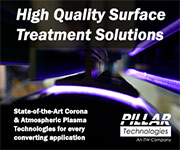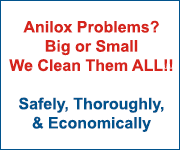Is Food Contact Notification a Proprietary Right?
- Published: November 01, 2000, By Sheila A. Millar, Attorney-at-Law, Keller & Heckman LLP, Washington, DC
The Food Contact Notification (FCN) program of the Food and Drug Administration (FDA), effective Jan. 18, 2000, provides an expedited means for converters and suppliers to get new substances cleared for use in food packaging.
Under this program, a manufacturer or supplier of a food-contact substance submits a notification to FDA regarding the identity and use of the substance, along with data supporting the conclusion that the substance is safe for the intended use. If FDA does not object to the notification within 120 days of receipt, the substance may be legally marketed for the notified use.
Unlike food additive regulations, the notification will be proprietary and may be relied upon only by the submitter, or notifier, and its customers.
With 76 FCN listings to date by FDA, here is what we have learned so far about the scope of this "proprietary right."
- Does an effective FCN grant an exclusive proprietary right?
Unlike a patent or trademark, a notifier's proprietary right to an effective FCN is not necessarily exclusive. A competitor can submit an FCN to FDA for the same substance and obtain its own notification in due course. This process can be repeated by anyone who collects and submits adequate chemistry and toxicology data demonstrating that the substance is safe.
- Can a notifier's proprietary right to a food-contact substance expire?
FDA has the power to cancel an FCN any time it determines that the substance is unsafe. Recognizing that new safety data may arise after a listing, in advising the FCN submitter that its FCN is effective, FDA warns the notifier to alert FDA if it becomes aware of data raising questions about the safety of the intended use of the food-contact substance.
- Can the notifier transfer, assign, or license its FCN to a third-party?
Under Section 409(h)(2)(C) of the Federal Food, Drug, and Cosmetic Act, a premarket notification is effective for the manufacturer, not for a similar or identical substance produced by someone other than the manufacturer identified in the notification
One could argue the notifier of an effective FCN has a proprietary right to the FCN and can, like any other intellectual property right, assign, transfer, or license it to others. FDA's position, though, is somewhat different, based on the following examples from its June 2000 administrative guidance document:
If there is an effective notification for polymer antioxidant X produced by manufacturer A and intended for use with limitation in polymer Y:
1) A supplier of antioxidant X may rely on that notification if the supplier can establish that the antioxidant was produced by manufacturer A and the supplier is marketing antioxidant X for the intended use that is the subject of the notification.
2) A manufacturer of polymer Y may rely on the notification to use antioxidant X if the polymer manufacturer can establish that the antioxidant X was manufactured by manufacturer A and the antioxidant X is being used under conditions described in the notification.
3) A manufacturer producing food packaging from polymer Y containing antioxidant X may rely on the notification to market such food packaging if the packaging manufacturer can establish that antioxidant X was produced by manufacturer A and has been used under conditions described in the notification.
The examples permit the use of antioxidant X if: 1) antioxidant X is being used under the conditions of the notification, and 2) antioxidant X was produced by manufacturer A. Therefore, a notifier may sell, transfer, assign, or license its FCN as long as the manufacturer identified in the FCN continues to manufacture the food-contact substance. Given that a new notification can be filed by any interested party—and becomes effective in 120 days—it is clear that a FCN does not have tremendous intrinsic licensing value.
As these examples demonstrate, while there are practical limits to the scope of the FCN "proprietary right," the benefits of expedited consideration nevertheless offer clear advantages to manufacturers of food packaging and their customers.
Sheila A. Millar, a partner with Keller and Heckman LLP, counsels both corporate and association clients. Contact her at 202/434-4143; millar@khlaw.com; packaginglaw.com.













